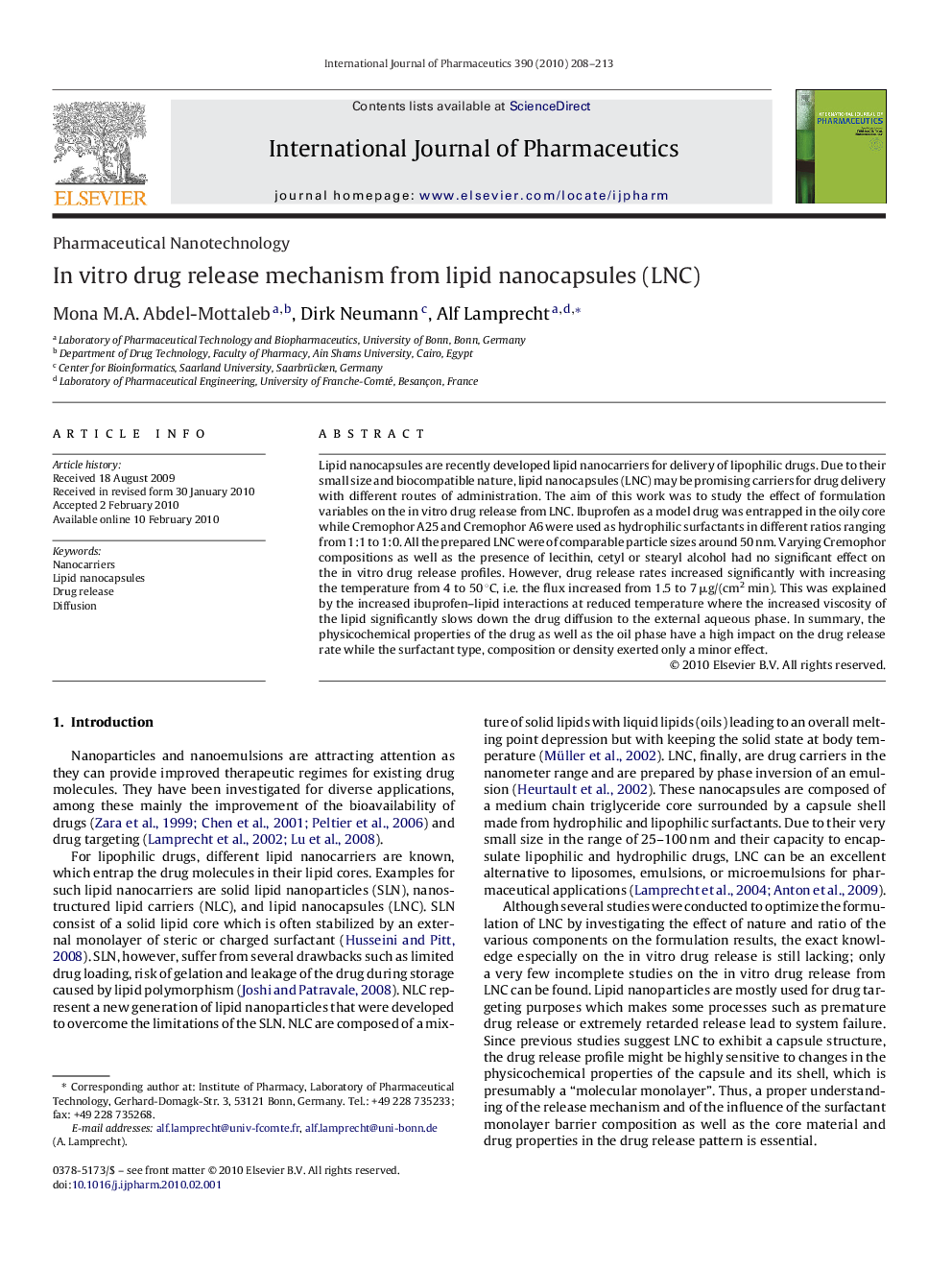| Article ID | Journal | Published Year | Pages | File Type |
|---|---|---|---|---|
| 2504174 | International Journal of Pharmaceutics | 2010 | 6 Pages |
Lipid nanocapsules are recently developed lipid nanocarriers for delivery of lipophilic drugs. Due to their small size and biocompatible nature, lipid nanocapsules (LNC) may be promising carriers for drug delivery with different routes of administration. The aim of this work was to study the effect of formulation variables on the in vitro drug release from LNC. Ibuprofen as a model drug was entrapped in the oily core while Cremophor A25 and Cremophor A6 were used as hydrophilic surfactants in different ratios ranging from 1:1 to 1:0. All the prepared LNC were of comparable particle sizes around 50 nm. Varying Cremophor compositions as well as the presence of lecithin, cetyl or stearyl alcohol had no significant effect on the in vitro drug release profiles. However, drug release rates increased significantly with increasing the temperature from 4 to 50 °C, i.e. the flux increased from 1.5 to 7 μg/(cm2 min). This was explained by the increased ibuprofen–lipid interactions at reduced temperature where the increased viscosity of the lipid significantly slows down the drug diffusion to the external aqueous phase. In summary, the physicochemical properties of the drug as well as the oil phase have a high impact on the drug release rate while the surfactant type, composition or density exerted only a minor effect.
